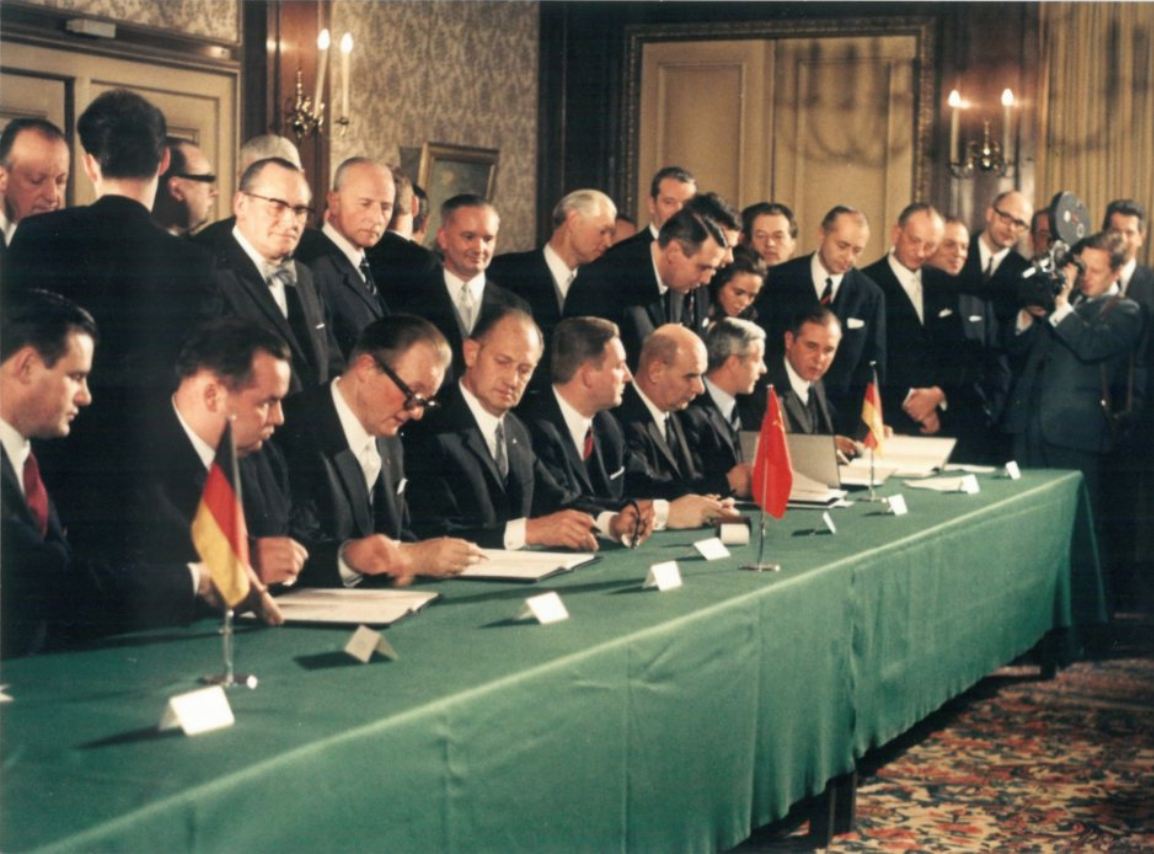Beginning of gas cooperation between the USSR and Europe
The "Gas for Pipes" deal was a long-term agreement between the Soviet Union and the Federal Republic of Germany to supply the USSR with large-diameter pipes and other equipment for building a gas pipeline to Western Europe in exchange for the pipes and equipment supplied with gas from the Western Siberian fields.
Negotiations were held for nine months alternately in Vienna, Moscow, Essen and Cologne. On February 1, 1970, in the conference hall of the Kaiserhof Hotel in Essen, an agreement was signed by Minister of Foreign Trade Nikolai Patolichev and Minister of Economy of Germany Professor Karl Schiller on natural gas supplies from the USSR to West Germany. The agreement provided for the delivery of at least 52.5 billion cubic meters of natural gas to Germany over a 20-year period beginning in 1973.
From this time on, the Soviet Union and East European socialist countries began integrating into the global capitalist system as suppliers of raw materials. By halting its main ideological force: communist expansion and support of revolutionary forces in capitalist countries, the CPSU leadership predetermined the sad fate of socialism in the USSR. It was in the 1970s that the Soviet state finally transformed itself from a factor in the world revolution into an assistant to world capitalism by supporting it economically - by incorporating the socialist economies into the capitalist world division of labor. In addition, this contract increased the financial and technological dependence of the USSR on the West, and made the development of the Soviet gas industry, including the gas pipeline network, dependent on the volume of Western imports of natural gas. Therefore, it is not surprising that the pace of the country's gasification slowed sharply from the late 1970s onward.

#
USSR #
Germany #
gas #
pipeline #
history #
capitalism #
europe #
СССР #
история